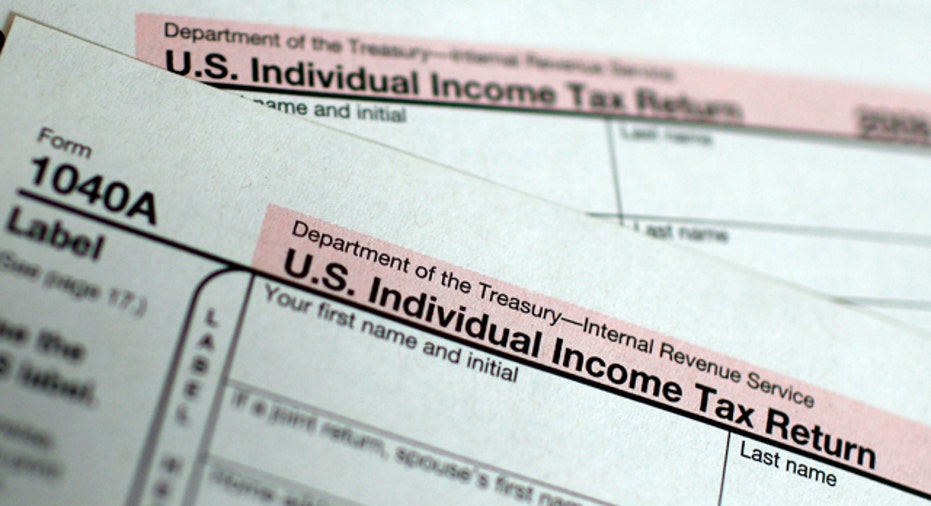IRS Filed a tax Lien on Your Home --Now What?

If you are past due on your federal income taxes, the Internal Revenue Service can file a tax lien against your house. A lien can complicate selling the home and make it difficult to refinance the mortgage.
You're subject to an IRS lien whenever you're past due on your taxes, says E. Martin Davidoff, a tax attorney and certified public accountant in Dayton, N.J. An IRS tax lien on a home isn't official until you receive a notice of federal tax lien, which means that the IRS has made a legal claim to your property as security for a tax liability.
"You typically need to owe $5,000 or more before an IRS tax lien is triggered," Davidoff says.
Elizabeth Gonsalves, a tax attorney in Encino, Calif., says, "IRS tax liens on homes are generally triggered whenever the IRS perceives it will be difficult to collect the full amount you owe within the statute of limitations for the payment of IRS debt, which is 10 years."
Tax authority must follow procedures
An IRS tax lien can be filed only after a liability is assessed, a notice and demand for payment is served on you, and you fail to pay the debt within 10 days of that notification, Gonsalves says.
Even if you have an IRS tax lien on your property, this doesn't mean the IRS can force you to sell your home or that the government has taken over your property. However, if you want to sell the home, the IRS has a right to take the proceeds from the sale to satisfy your tax bill. If you want to refinance, the federal government may be willing to subordinate the lien, particularly if you use home equity to pay your taxes.
Unfortunately, an IRS tax lien may make it difficult for you to qualify for a refinance.
IRS tax liens and your credit
An IRS tax lien, even if it is paid in rll, will stay on your credit history for seven years after it's paid, says Rod Griffin, director of public education for Experian. "The further in the past the lien was paid, the less impact it will have on credit scores and lending decisions," Griffin says.
Under the IRS Fresh Start program, you can request that the IRS withdraw your lien after it is paid in full. You need to complete a form, and then once the lien has been withdrawn, you need to send that information to all three credit bureaus.
"If the lien is withdrawn and reported as such, Experian deletes it from the file. As a result, it will no longer appear in the credit report," Griffin says.
Eliminating an IRS tax lien
The best plan, if you know you may be getting an IRS tax lien on your home, is to sell it before the lien is triggered, says David L. Mortimer, a certified public accountant in Alexandria, Va.
If that's not possible, here are your options:
Pay your bill in full. "If you pay the tax bill, the IRS will release your lien," says Davidoff.
Once you have paid the bill, you should request that the IRS take the extra step to withdraw your lien.
Start an installment plan. If your tax bill is less than $50,000 and you enter into an installment plan with the IRS, you can get your tax lien withdrawn.
"You have to set up a direct debit from your bank account or your employer and then file a form to request a withdrawal of the lien," Gonsalves says. "You must make three payments before you file the form, and then it could take two or three months to have the lien removed. But once this happens, it's as if the lien never existed, even though you're making monthly payments on the debt."
Gonsalves says you must fully repay your back taxes within six years, so your monthly payments on a $50,000 tax bill would be nearly $700.
Sell the property. If you have enough equity to satisfy your tax bill, Davidoff says you can discharge the lien by selling and using your sales proceeds to pay the IRS. You would need to provide the IRS with complete documentation about the sale. However, if you don't have enough equity, you can request a release of the lien, Davidoff says. The IRS might accept a partial payment or look for other assets you can use to pay your taxes.
Request lien subordination and refinance. "If you want to refinance and can demonstrate to the IRS that you intend to use the savings on your mortgage or cash from your home equity to pay your taxes, the IRS will usually agree to subordinate the lien," Gonsalves says.
While an IRS tax lien on your home is never good, taxpayers have more options than they did in the past to resolve their tax issues and offset the damage to their credit.
Copyright 2013, Bankrate Inc.



















